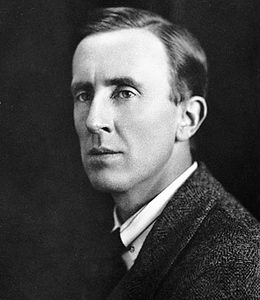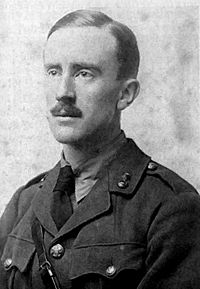ragashree
Reason vs Being
- Joined
- Nov 3, 2008
- Messages
- 1,770
- MBTI Type
- Mine
- Enneagram
- 1w9
Unfortunately, I have to disagree with most people and assert that Tolkien was an S.
Stop being so NF about it. I can tell you secretly love it

The most interesting story I head was that Tolkien was a brilliant man, but a horrible lecturer (not related to him being an S). Tolkien was scribble stuff on the board and sometimes even mumble his lecture under his breath. Lewis was apparently a fantastic teacher.
Incidentally, that says a lot for my case for Lewis being an INFJ as opposed to Tolkien. I believe INFJ's tend to actually enjoy being diadactic; certainly to feel that they are helping people in some way and imparting useful knowledge to them. But you would maybe be better placed to answer this one, being that type and all.
I'm going to focus on LoTR because I don't have all day to analyze his literature and he described it as his best work. I assume someone's best work is one that is most representative of them.
 That line of reasoning doesn't work for me, I'm afraid. I can see why he said it was his best work, as it undoubtably was the best that was published during his lifetime, and the Silmarillion was never brought to a completed form that Tolkien was happy enough with to publish. But this does not mean it was the work that was most important to Tolkien. He appears to have spent his entire adult life working on and thinking about the universe contained in the Silmarillion. The Lord of the Rings was a product of that universe, fleshed out into novelistic form. I think he would have been fairly happy to continue immersed in his own fantasy world without ever having written or published the Lord of the Rings, but I can't see the reverse applying.
That line of reasoning doesn't work for me, I'm afraid. I can see why he said it was his best work, as it undoubtably was the best that was published during his lifetime, and the Silmarillion was never brought to a completed form that Tolkien was happy enough with to publish. But this does not mean it was the work that was most important to Tolkien. He appears to have spent his entire adult life working on and thinking about the universe contained in the Silmarillion. The Lord of the Rings was a product of that universe, fleshed out into novelistic form. I think he would have been fairly happy to continue immersed in his own fantasy world without ever having written or published the Lord of the Rings, but I can't see the reverse applying. Tolkien is described as "hard minded" (preferring hard facts to abstract ideas; I can search for the source if you need it),
INFP's in classical MBTI use their inferior Te process for dealing with facts, logic, and abstract reasoning, so that wouldn't surprise me. I would expect an INFP who was able to hold down a high level academic post to self-select as one who had developed his inferior process to a good level of maturity. An INFP without it might still be a good writer but would struggle to maintain the necessary level of intellectual rigour.
and his attention to detail can be seen in his novels. Tolkien would frequently go on nature walks with C.S. Lewis and Lewis' brother. They were often annoyed because Tolkien would stop and gaze at one specific flower or tree for several minutes while they preferred to keep walking and taking in the "big picture." His descriptions of the different forests throughout Middle-earth are very rich with sensory detail. Lothlorien, Mirkword, etc. are each distinct forests with distinct features. He even depicted specific swords with precise sensory details. Objects and places in the novel were simply distinct, yet still realistic. I can walk into a forest and be reminded of one from his novel; it's as if his novels evoke the very (Platonic) Idea of "forest."
So he liked to pay attention to detail. INFP's (who use a tertiary Si process) are often extreme perfectionists when doing creative work, and are highly unlikely to skimp on details, sensory or otherwise, that will make their creation more complete. A bigger problem is knowing when to stop. You might want to read what I said about this in post 15 since you are basing these comments on your reading of LOTR only.
but romance or emotions were never a central focus.
O RLY? that one could do with some justification. I suppose it depends whether you choose to use your own definition of what is romatic and what are emotions. In which case I would be interested to see what that definition is.



